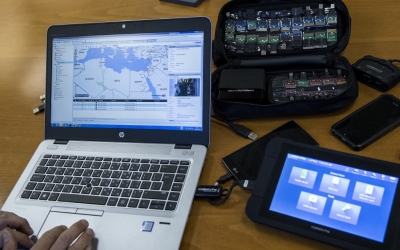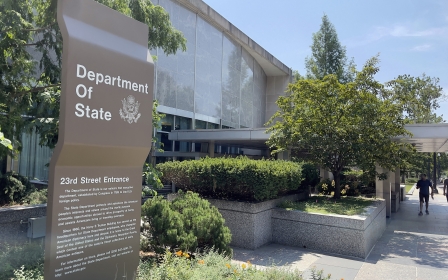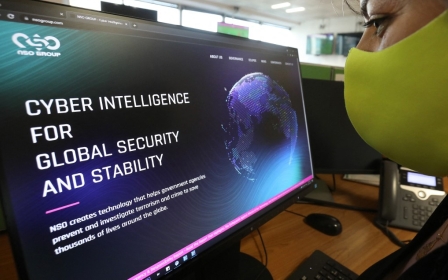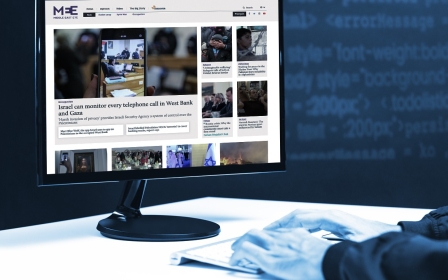Saudi activist Loujain al-Hathloul files lawsuit against UAE-based cyber firm
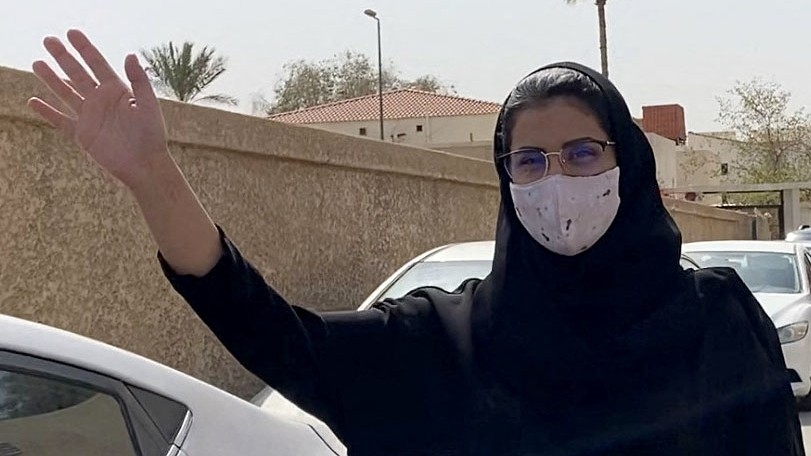
Saudi rights activist Loujain al-Hathloul filed a lawsuit in the US on Thursday against a UAE-based cyber security company and three of its former executives for allegedly hacking her phone before she was arrested.
The Electronic Frontier Foundation (EFF), a digital rights group which filed the complaint on Hathloul's behalf, said it was pursuing charges against DarkMatter, a cybersecurity company headquartered in Abu Dhabi, and three of its executives for allegedly hacking her phone to secretly track her communications and whereabouts.
EFF said Hathloul was among the victims of an illegal spying programme created in the wake of the 2011 Arab Spring uprisings to identify and monitor activists, journalists, rival foreign leaders, and perceived political enemies.
In the lawsuit, Hathloul claims her phone was hacked to track her location and steal information as part of broader surveillance efforts targeted at dissidents within the UAE and its close ally, Saudi Arabia.
She said the hacking of her phone led to her "arbitrary arrest by the UAE's security services and rendition to Saudi Arabia, where she was detained, imprisoned, and tortured".
Hathloul, 31, was detained in May 2018 with several other female activists - just weeks before the ban on women driving was lifted.
Last December, a Saudi court handed Hathloul a prison term of five years and eight months on charges of terrorism-related crimes, but a partially suspended sentence - and time already served - led to her release in February.
Hathloul remains on probation, and is barred from leaving Saudi Arabia for five years. In March, she lost a court appeal against the sentence and the restrictions imposed against her, including the travel ban.
While some of the activists detained along with Hathloul have been provisionally released, several others remain imprisoned on what campaigners describe as opaque charges.
David Greene, EFF's civil liberties director, said in a statement that "companies that peddle their surveillance software and services to oppressive governments must be held accountable for the resulting human rights abuses".
"The harm to Loujain al-Hathloul can never be undone. But this lawsuit is a step toward accountability."
Legal battles against cyber-surveillance
In September, the three executives mentioned in Thursday's lawsuit agreed to pay a cumulative $1.7m in penalties, the amount they earned while working for the UAE, to resolve criminal charges in a deferred prosecution agreement the Justice Department described as the first of its kind.
The Justice Department described each of them as former US intelligence or military personnel.
According to Reuters, the trio were part of a clandestine unit named Project Raven, which reportedly hacked into the accounts of human rights activists, journalists and rival governments at the behest of the UAE's monarchy.
Over the past few years, news reports have highlighted the UAE's sophisticated intelligence operations which have had help from former US operatives. The targets of these spy campaigns included government officials, United Nations offices in New York, and FIFA executives.
This is not the first time DarkMatter has been at the centre of a legal battle. Last December, Al Jazeera anchor Ghada Oueiss filed a lawsuit against the crown princes of Saudi Arabia and the UAE, accusing them of orchestrating an operation aiming to harm Oueiss's character and journalistic career.
The lawsuit outlined forensic evidence - obtained through a detailed look into Oueiss' phone - that claims DarkMatter hacked into her device.
DarkMatter did not respond to Middle East Eye's questions by time of publication.
Thursday's court filing is the latest challenge to the secretive global private cyber-surveillance complex, which over the past several years has been found to sell hacking services to governments, targeting the mobile devices of rights activists, journalists and political opponents.
WhatsApp, a messaging service owned by Meta, formerly known as Facebook, filed a lawsuit against Israel's NSO Group in 2019, accusing it of infiltrating the instant messaging service to infect 1,400 "target devices" in order to steal information from human rights activists and dissidents worldwide.
Last month, Apple also filed a lawsuit against NSO, seeking to block the world's most infamous hacker-for-hire company from breaking into Apple's products, such as the iPhone.
"No government or individual should tolerate the misuse of spy malware to deter human rights or endanger the voice of the human conscious," said Hathloul.
"I hope this case inspires others to confront all sorts of cybercrimes while creating a safer space for all of us to grow, share, and learn from one another without the threat of power abuses."
Middle East Eye delivers independent and unrivalled coverage and analysis of the Middle East, North Africa and beyond. To learn more about republishing this content and the associated fees, please fill out this form. More about MEE can be found here.


